
COLIN SIMPSON
2008 Olympics Transformed China’s Image and Capital
Beijing 2022 Olympic Winter Games
THE Beijing Winter Olympics, which get under way on February 4, will inevitably spark memories of the last time the Chinese capital hosted Olympic competition. And however successful (or not, given diplomatic boycotts and other controversies) the 2022 event proves to be, it’s unlikely to have the same impact as the 2008 Summer Games.
Reports at the time described 2008 as the country’s “coming out party”, the moment China welcomed the world and took its place among the leading nations. It was the culmination of the policy of “reform and opening-up” instigated 30 years earlier by Deng Xiaoping, who had become China’s leader after the death of Mao Zedong.
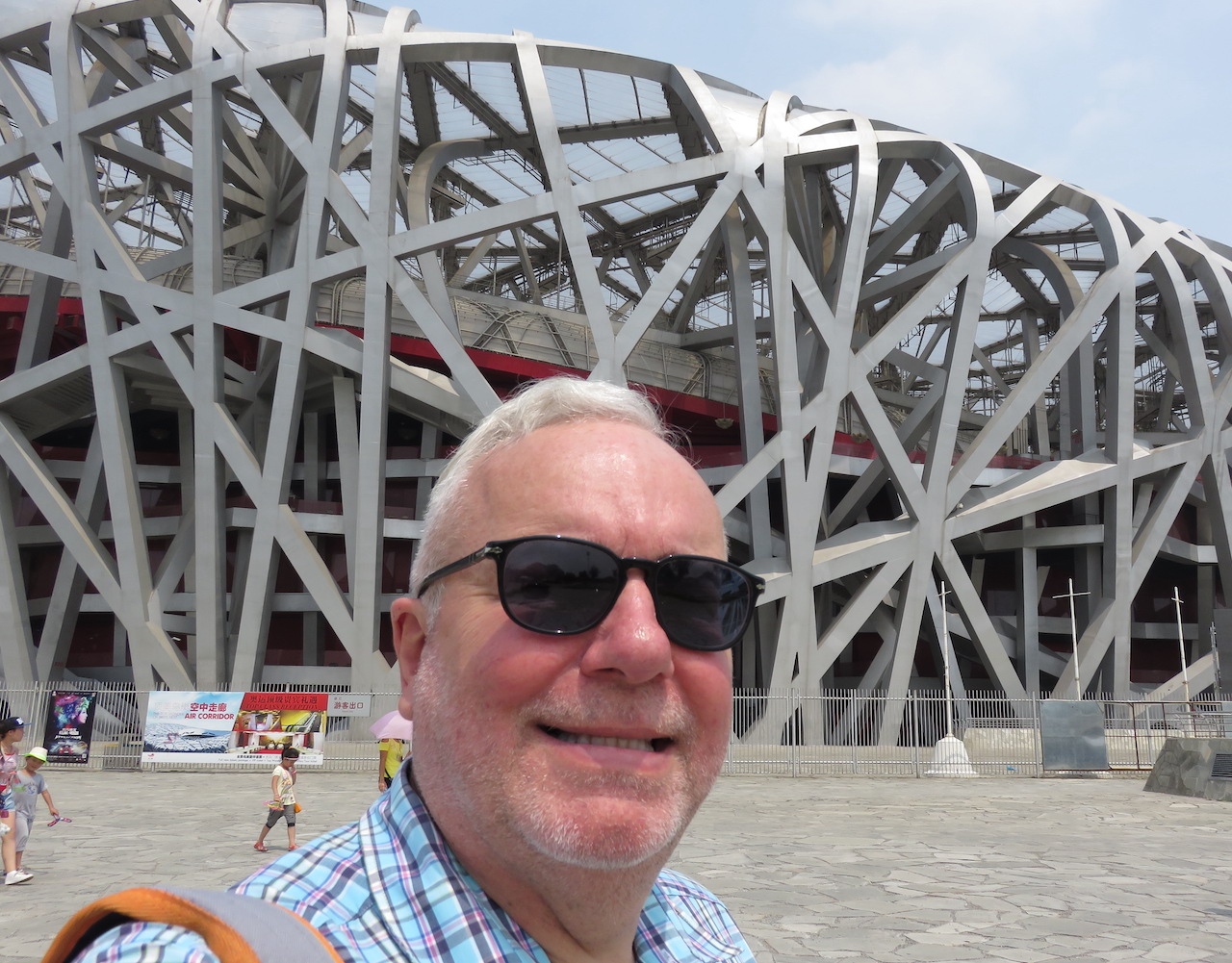
As well as transforming the country’s international status and image, the Games had a huge impact on Beijing. The sprawling city was reborn as massive infrastructure projects were completed in the years before the spectacular opening ceremony. There were new multi-lane roads, whole districts were rebuilt, and the metro network was expanded.
When Sue and I moved to Beijing six years later we were told that much of what we saw in the modern districts had been built for 2008, right down to the city’s many public toilets – previously a rarity across China. The most obvious legacy of the Games was the Olympic park with its striking purpose-built venues, most notably the 80,000-seater Bird’s Nest stadium, and the Water Cube aquatics centre. The Bird’s Nest, designed by Ai Weiwei, remained a spectacular site when glimpsed from a taxi as we went off to collect our work permits from a suburban government office.
Coming Out Party
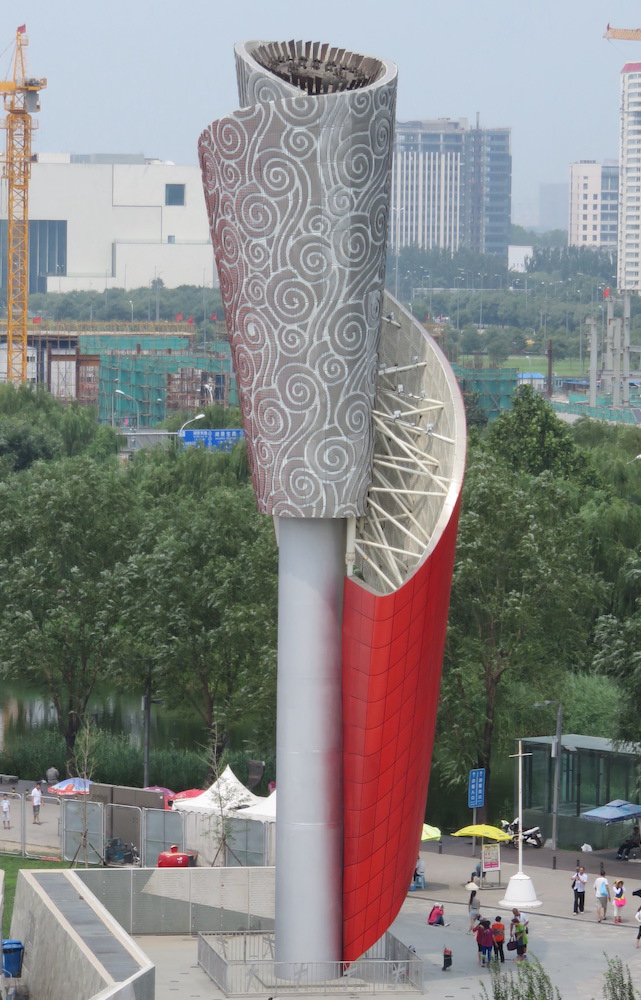
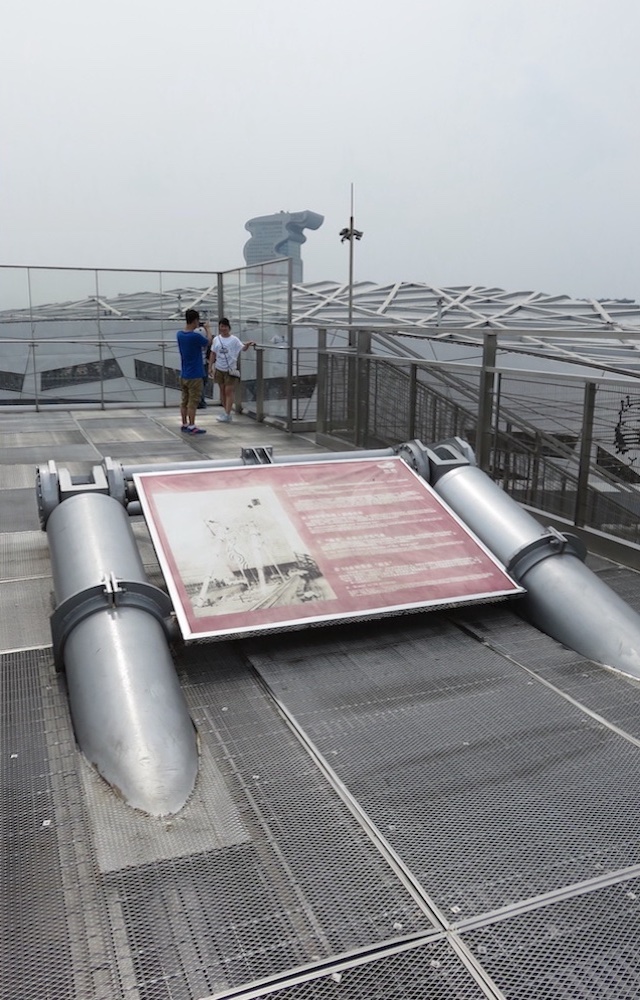
The tour revealed the secret of the opening ceremony’s dazzling climax, when the giant Olympic cauldron miraculously appeared as if from nowhere above the roof of the stadium and was lit by an athlete who had seemed to be running through the air. We were taken up to the roof where we saw the machinery that had lifted the cauldron into view. After the Games, the cauldron was moved to a ground-level site next to the stadium. Less interesting, as the tour continued, was a display of waxworks of the officials who had organized the Games.
Eight Gold Medals
The Water Cube, where Michael Phelps won eight gold medals, was repurposed after the Games, serving variously as a public swimming centre, an entertainment venue and a water park. As with the Bird’s Nest, sophisticated lighting means it looks best at night.
Several of the venues built for 2008 will be used for the Winter Olympics. The Bird’s Nest will host the opening and closing ceremonies – it will be fascinating to see how they try to top the 2008 opening extravaganza with its cast of 15,000. There were 2,008 drummers alone. Film director Danny Boyle studied the Beijing ceremony closely while planning the London 2012 opener. He discovered that the vast number of performers in the Bird’s Nest meant that they had to wear nappies during rehearsals, as toilet breaks would have slowed proceedings down too much.
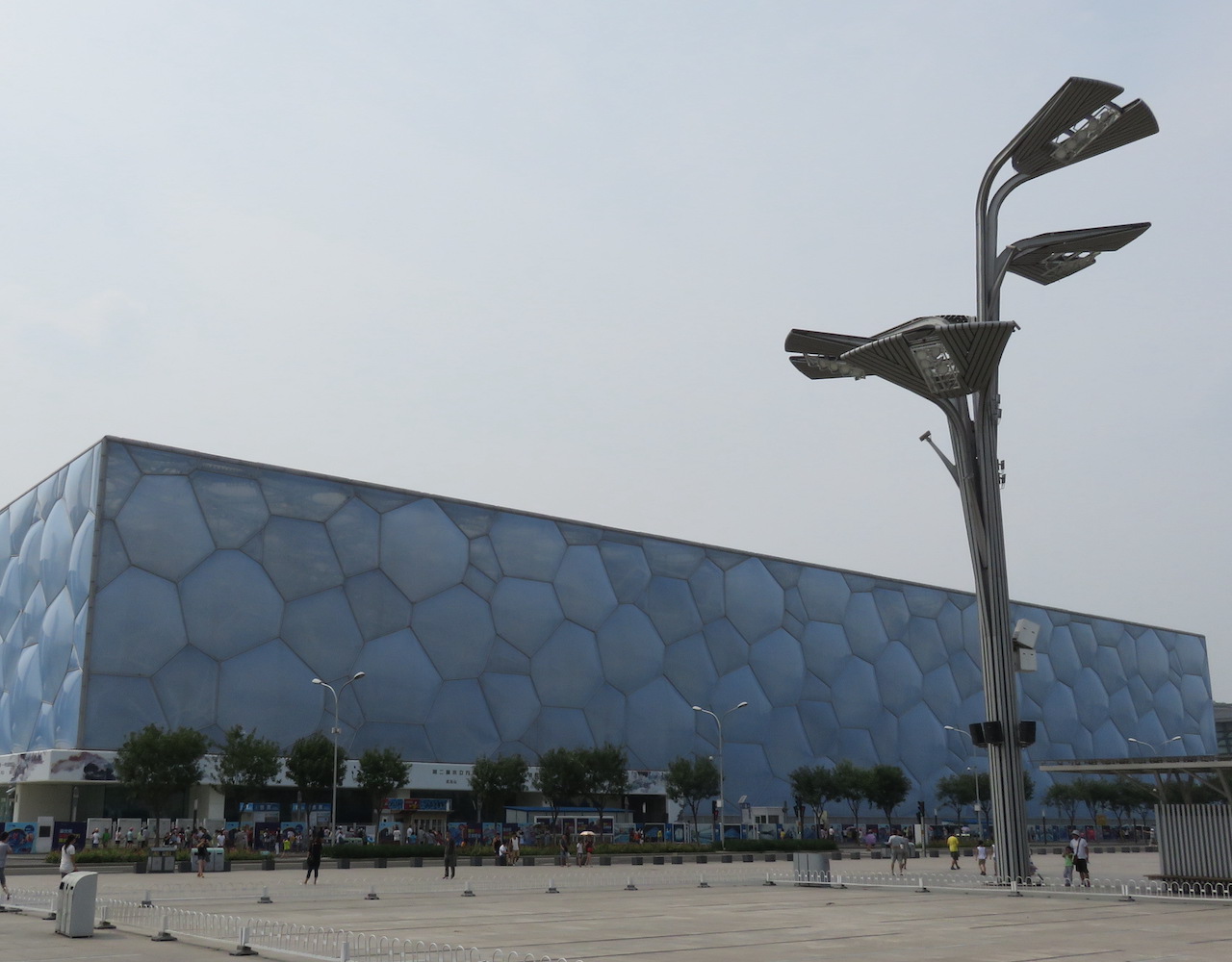
The Water Cube will adopt another new incarnation at the Winter Olympics as the curling venue – the installation of an ice rink has inspired the nickname the Ice Cube. Alpine skiing, the main attraction at any Winter Games, will take place 90 miles away at the town of Zhangshanying. Competitors will zip over artificial snow – the real stuff rarely falls in this part of the world. Researchers have raised safety and environmental concerns about the reliance on fake snow.
China has little history or tradition as a winter sports nation – the ski centre and other facilities at Zhangshanying such as the bobsleigh and luge track have had to be specially built. When we lived in Beijing youngsters were being encouraged to take up skiing as the government tried to whip up enthusiasm for the forthcoming Games.
Authoritarian Rule
Much has changed in China in the years between Beijing’s two Olympics. Three years after the Summer Games Ai Weiwei – a courageous dissident as well as a great artist – was arrested. He now lives abroad. The heady feelings generated by the triumphant 2008 sporting spectacle, the sense of an ancient nation emerging onto the modern world stage after a century in the doldrums, have long since dissipated. Then, the emphasis was on China’s growing importance as an economic force, and there was little emphasis on politics.
Now, under the authoritarian rule of President Xi Jinping, the country has become a regional and global heavyweight, exerting its military power in the South China Sea, asserting its economic clout by reviving ancient trade routes, and remaining impervious to Western criticism of its treatment of the Uighurs.
It seems ironic that, in the run-up to the Games, the whereabouts of a sportswoman – tennis player Peng Shuai, who disappeared in November after accusing a senior Chinese politician of rape – remain unknown.
January 2022
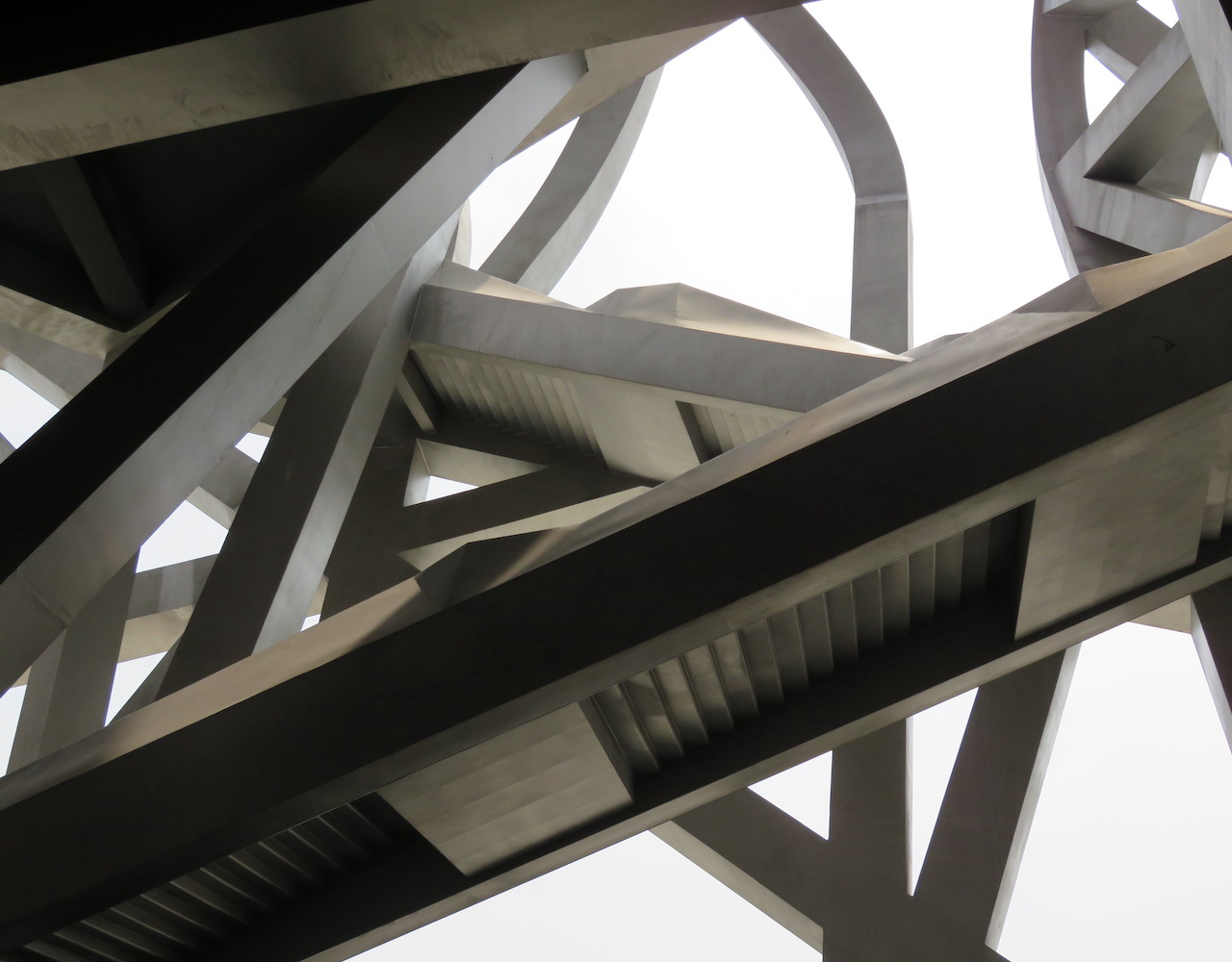
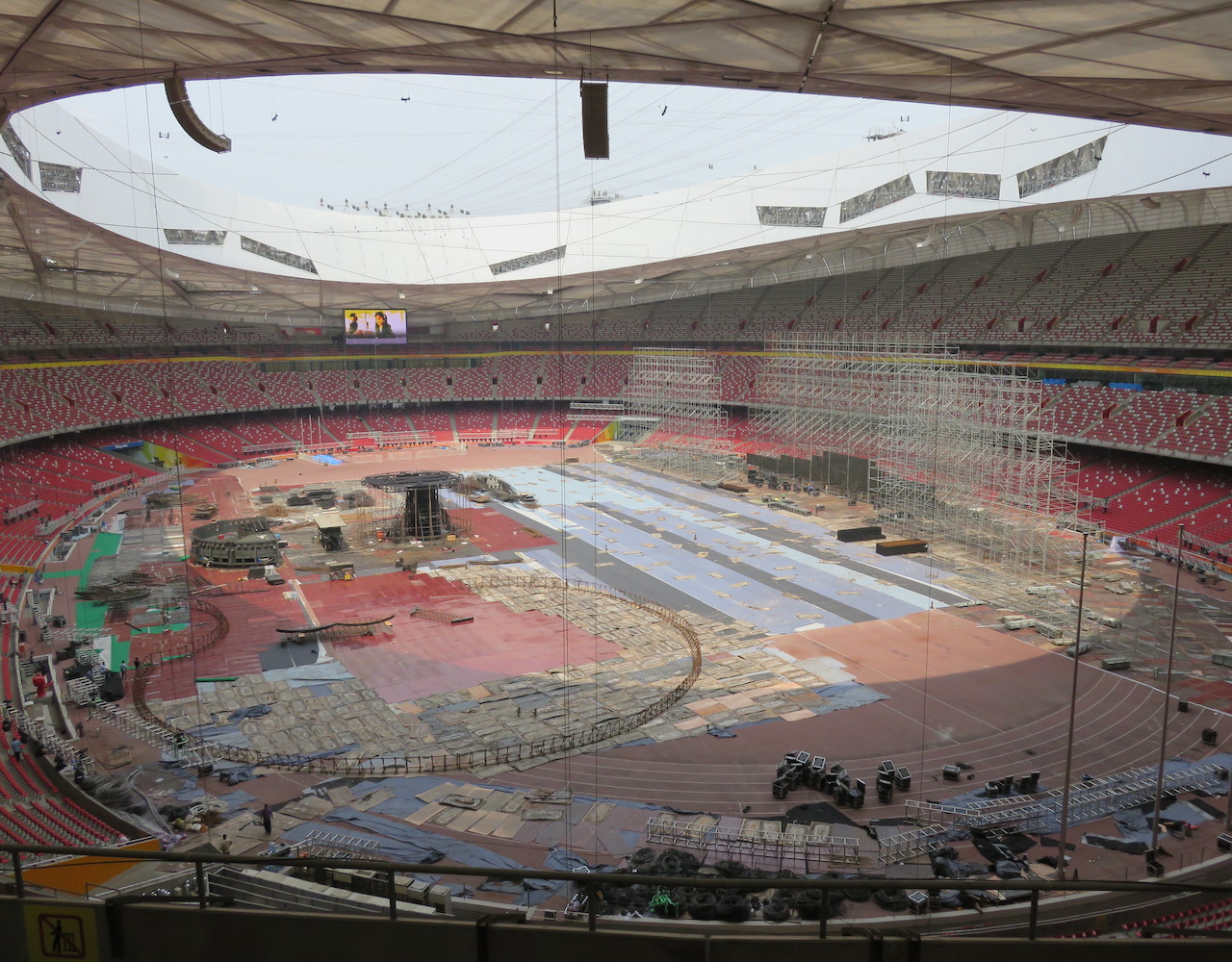
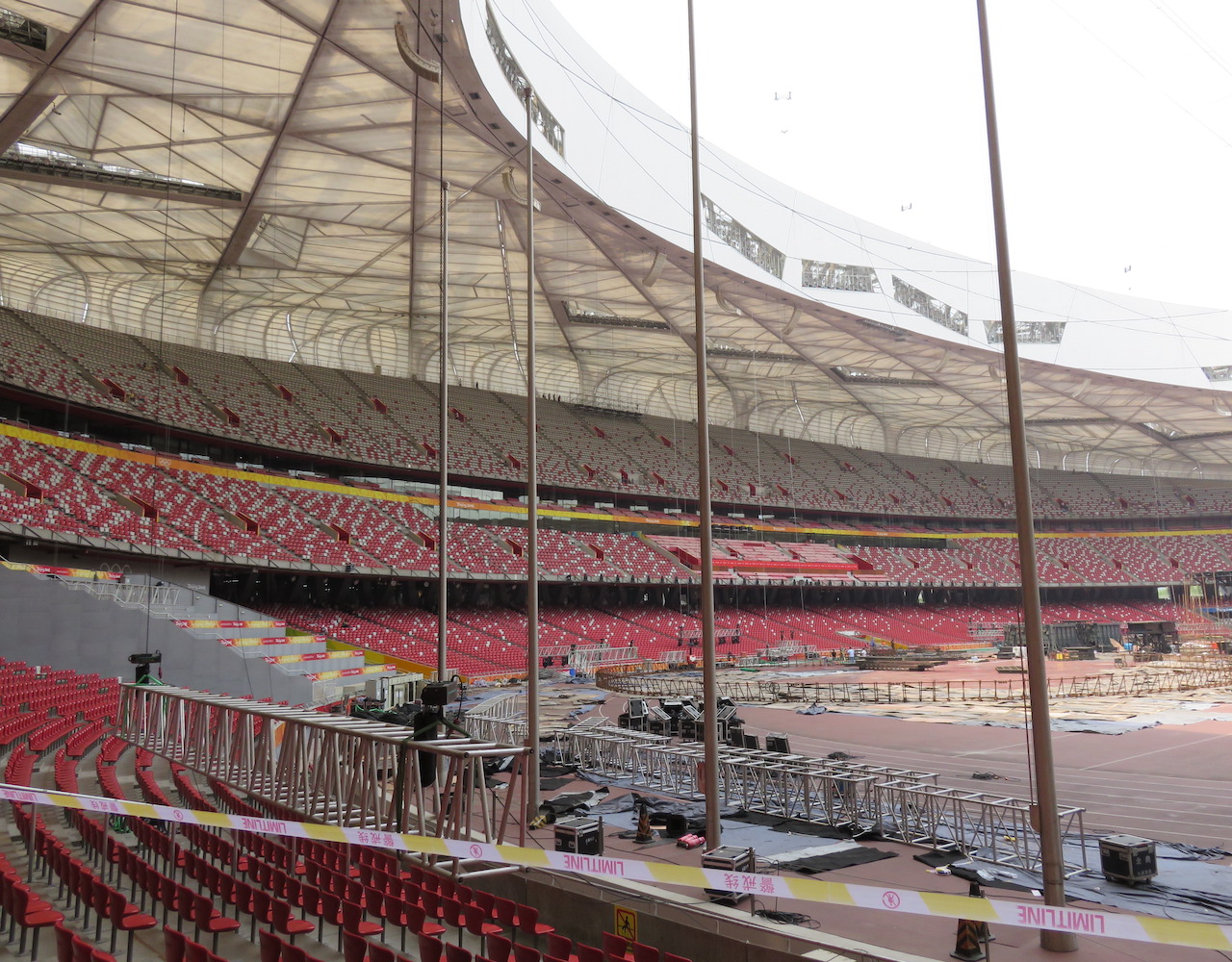
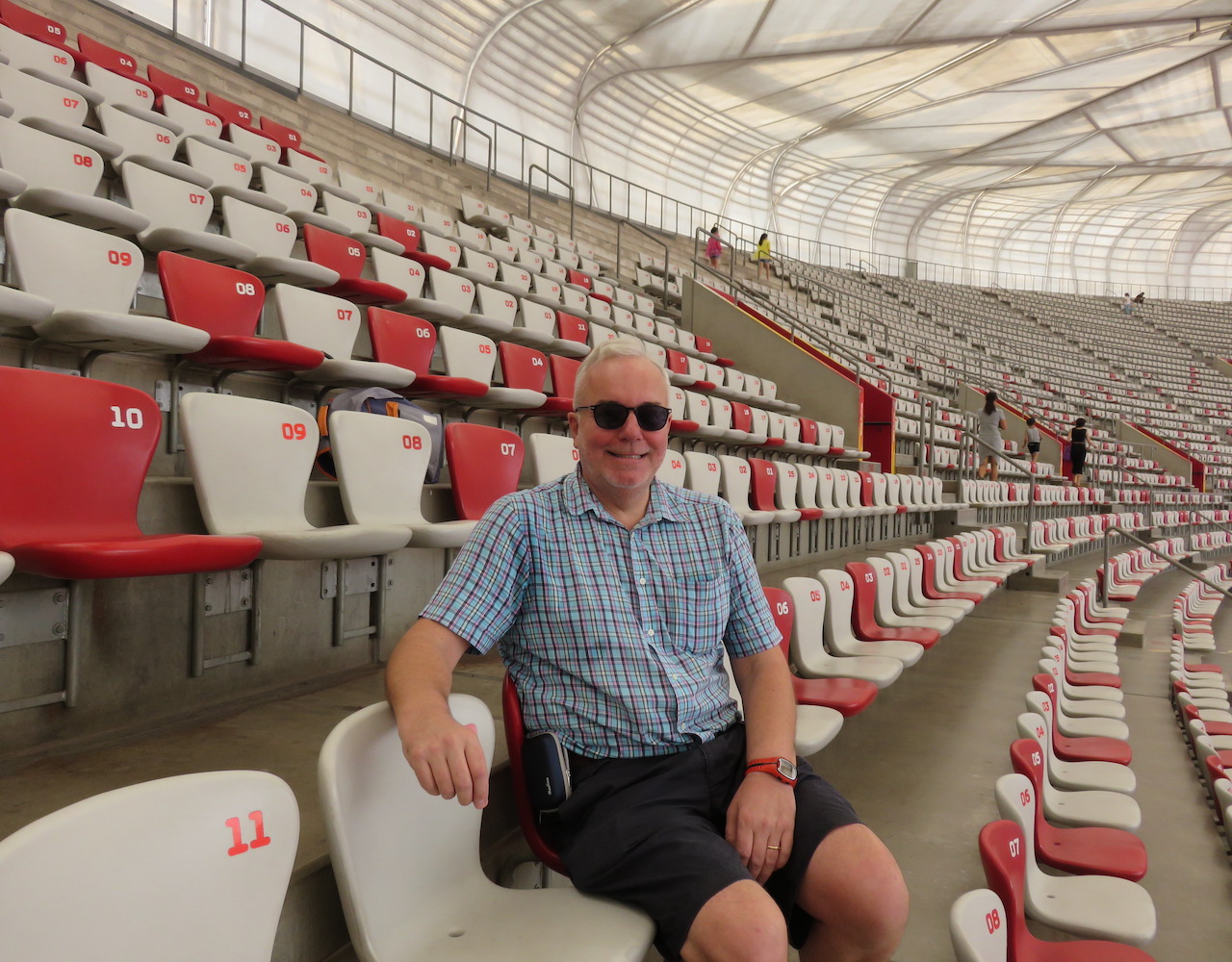
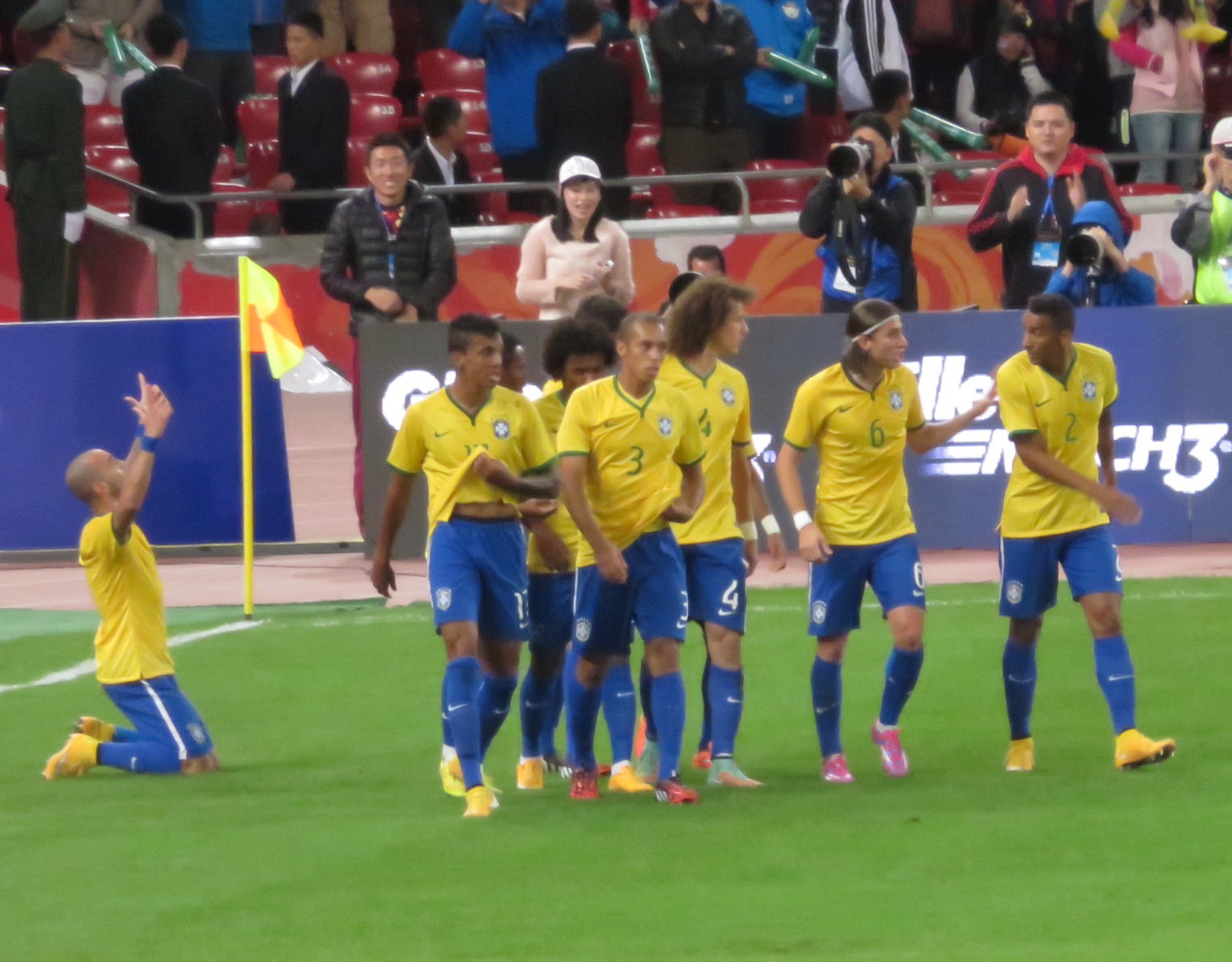
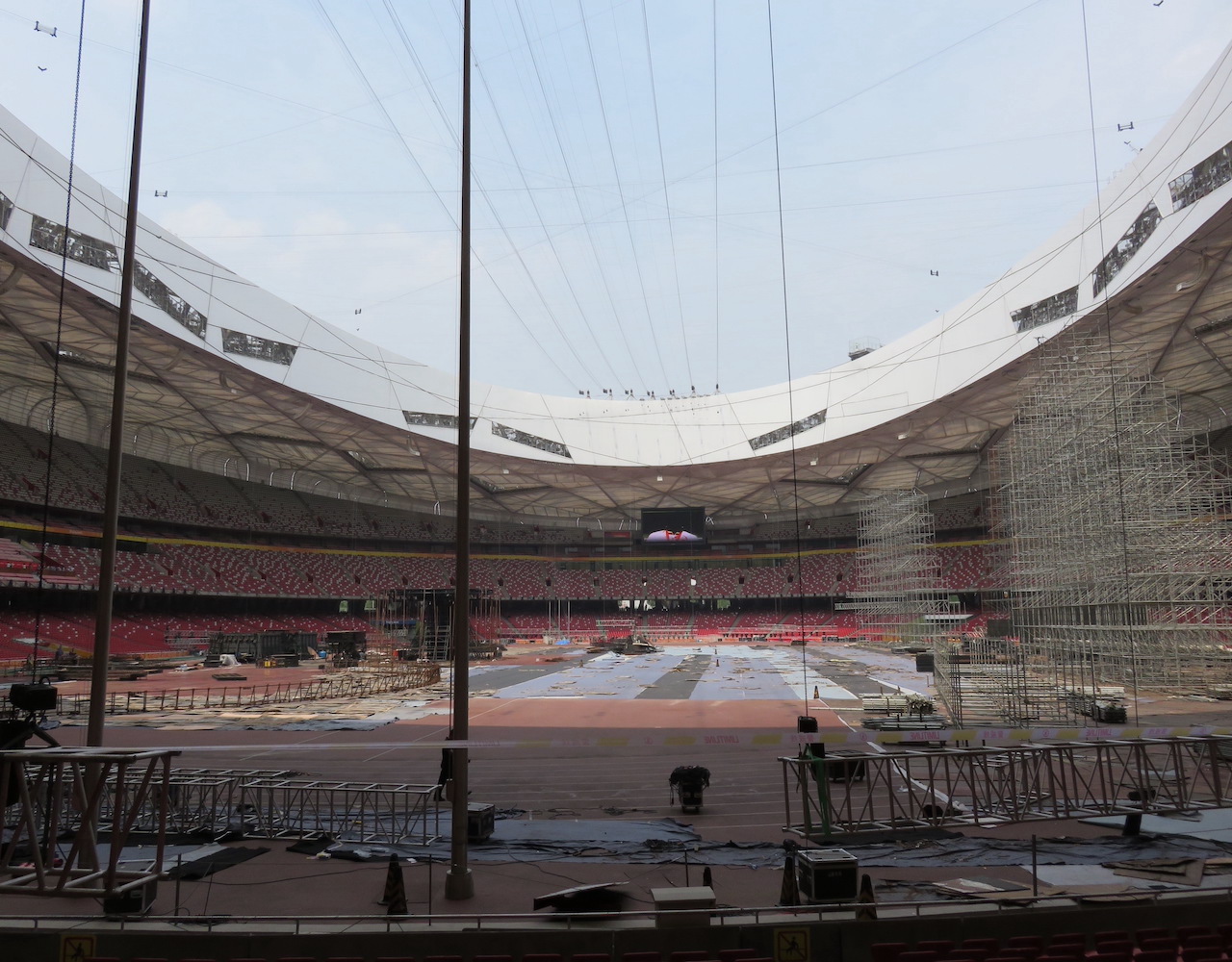
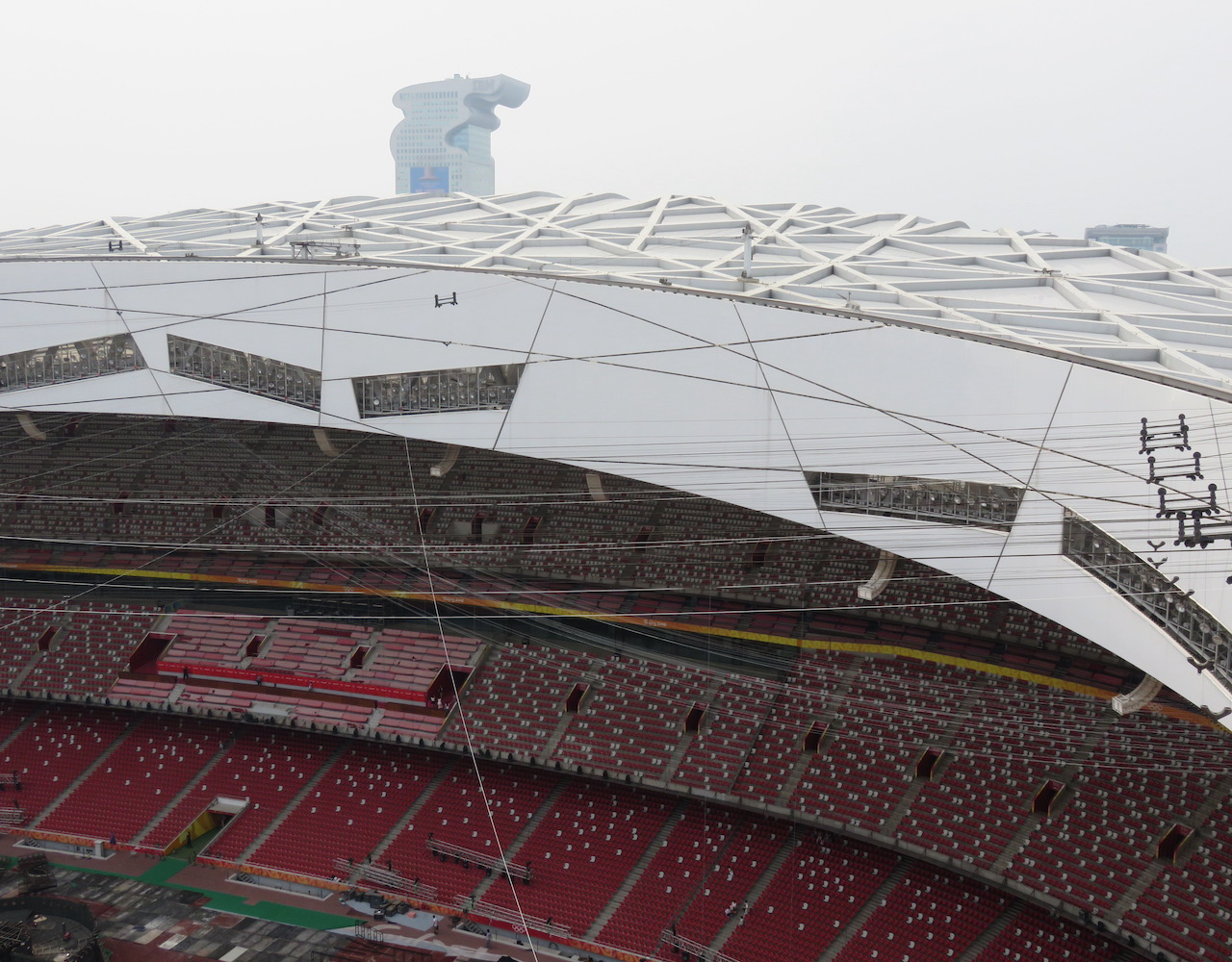
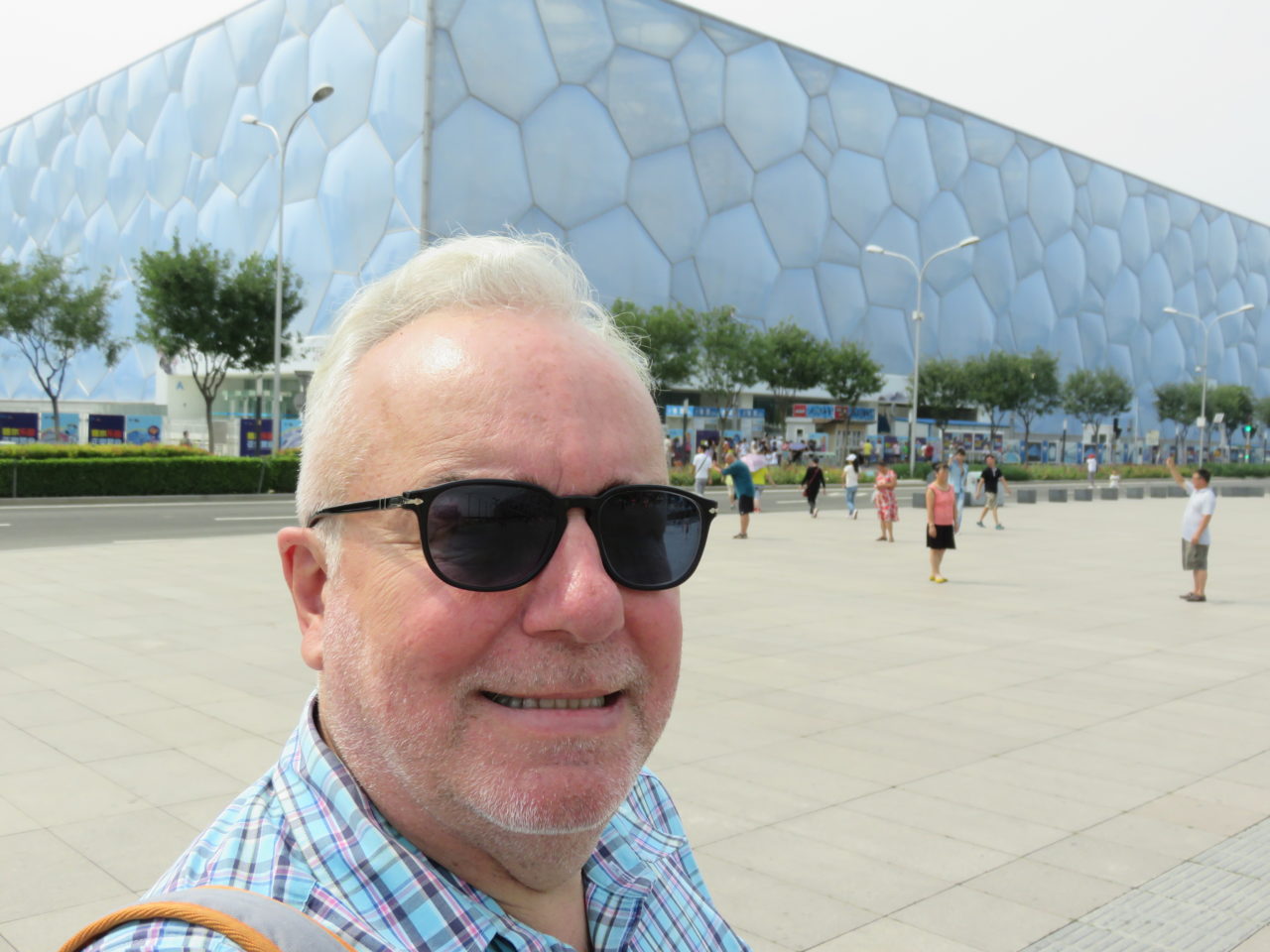
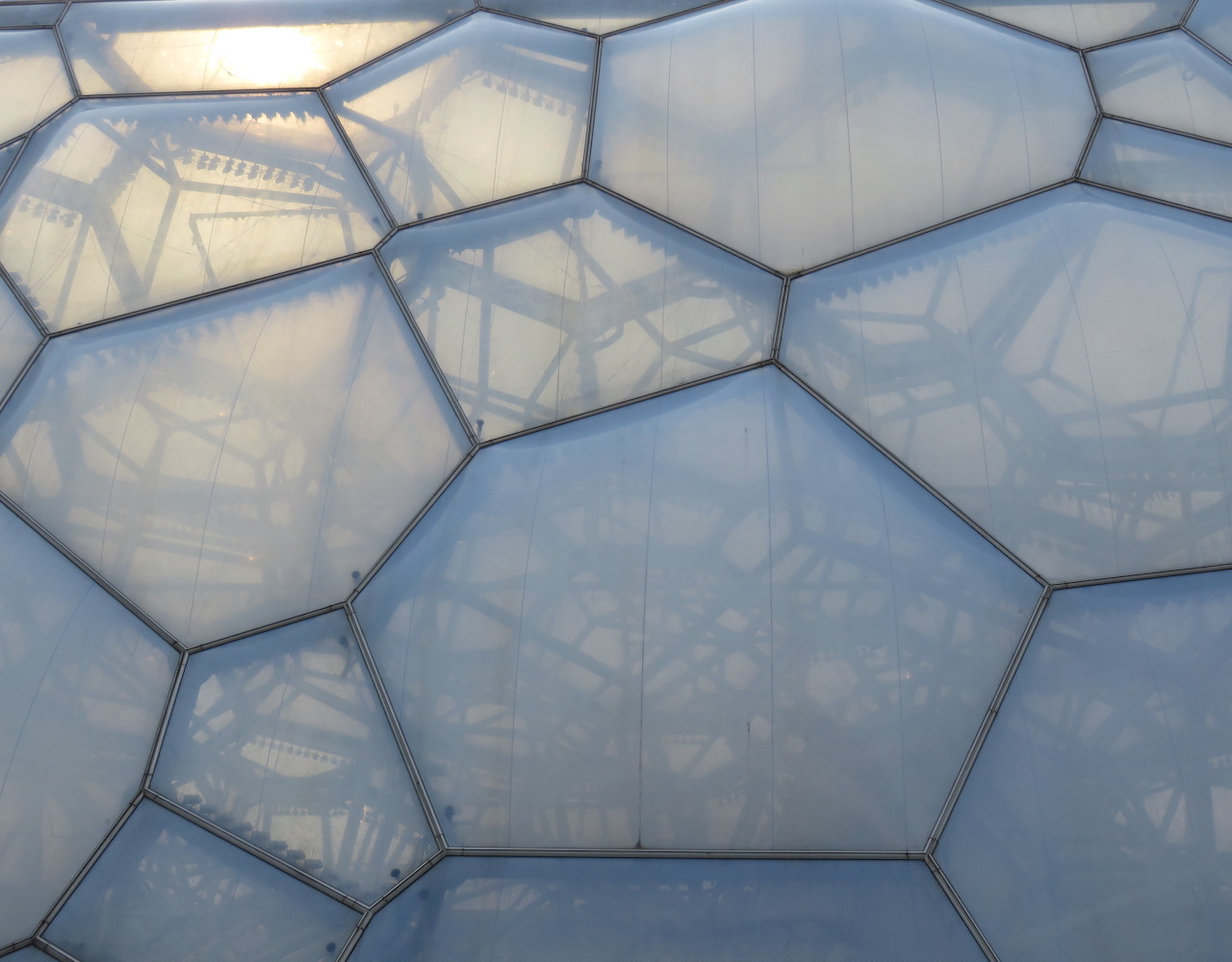
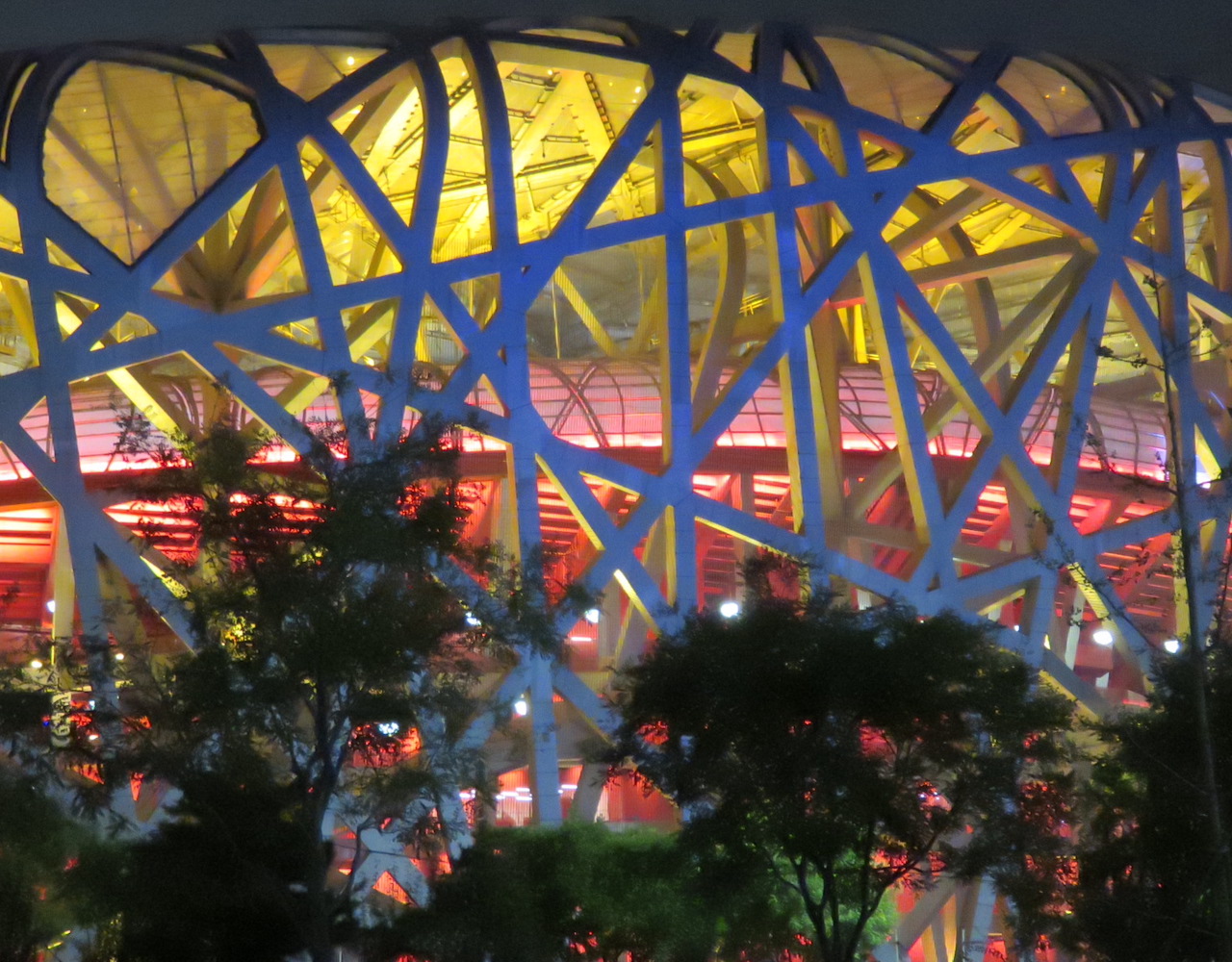

Something in the Air
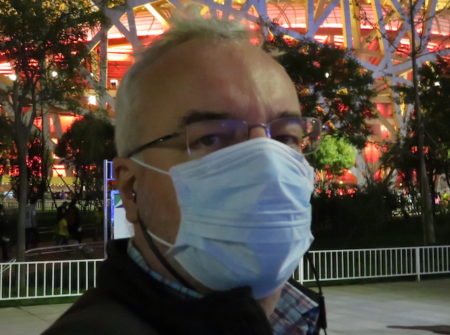
REMARKABLE efforts were made during the 2008 Games to counter the air pollution that often envelops Beijing. Smoke-belching factories around the capital were temporarily shut, and the normally grey skies turned blue.
Similar measures were taken while we were living in Beijing when the city hosted a meeting of the Association of South-East Asian Nations. The skies cleared once more, with locals dubbing the resulting colour “ASEAN blue”. The 2008 anti-pollution measures proved to be unsustainable, and soon after the closing ceremony the factories were once again pumping out choking smoke.
The air quality was poor on the night I went to the football match at the Bird’s Nest. As a result, I and many others wore the type of blue paper face-mask that has since become a common sight for a very different reason.
Pollution was often so bad that buildings near our apartment faded from view, and you would see cars on surrounding roads with their headlights switched on at midday. Expats ignored the government’s official air quality figures, preferring to rely on online data provided by instruments in the grounds of the US embassy.
Now, in the last few days before the 2022 Winter Games begin, the issue of smog in Beijing is again attracting the global media’s attention.
RELATED
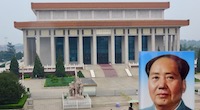 MAO MAUSOLEUM: Thousands throng to a memorial hall in Beijing’s Tiananmen Square to view the embalmed body of the revolutionary leader. READ MORE
MAO MAUSOLEUM: Thousands throng to a memorial hall in Beijing’s Tiananmen Square to view the embalmed body of the revolutionary leader. READ MORE
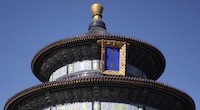 TEMPLE OF HEAVEN: For centuries, Chinese emperors prayed here for good harvests. And if the crops failed, the blame fell on them. READ MORE
TEMPLE OF HEAVEN: For centuries, Chinese emperors prayed here for good harvests. And if the crops failed, the blame fell on them. READ MORE
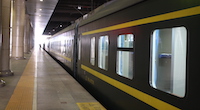 SLOW TRAIN FROM BEIJING: In December 2015 it was time for me to follow Colin to his new job in Hong Kong, which meant leaving my job in Beijing. I was travelling alone and decided to use my favourite means of transport – the train… READ MORE
SLOW TRAIN FROM BEIJING: In December 2015 it was time for me to follow Colin to his new job in Hong Kong, which meant leaving my job in Beijing. I was travelling alone and decided to use my favourite means of transport – the train… READ MORE
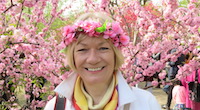 CHERRY BLOSSOM CRUSH: Each year in late March cherry blossom season arrives in Beijing in all its glory. What could be better, you might think, than a relaxing stroll through one of the city’s many fine parks gazing at the beautiful pink blooms… READ MORE
CHERRY BLOSSOM CRUSH: Each year in late March cherry blossom season arrives in Beijing in all its glory. What could be better, you might think, than a relaxing stroll through one of the city’s many fine parks gazing at the beautiful pink blooms… READ MORE
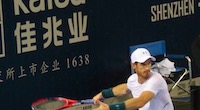 MURRAY IN CHINA: The first men’s Shenzhen Open, held in 2014, was won by Scotland’s Andy Murray. Fast forward four years, and he was back. In the intervening years Murray had cemented his place as a tennis great by winning Wimbledon… READ MORE
MURRAY IN CHINA: The first men’s Shenzhen Open, held in 2014, was won by Scotland’s Andy Murray. Fast forward four years, and he was back. In the intervening years Murray had cemented his place as a tennis great by winning Wimbledon… READ MORE
RECOMMENDED
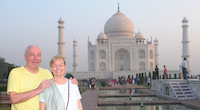 WELCOME TO OUR WORLD! Afaranwide’s home page – this is where you can find out about our latest posts and other highlights. READ MORE
WELCOME TO OUR WORLD! Afaranwide’s home page – this is where you can find out about our latest posts and other highlights. READ MORE
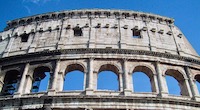 TOP 10 VIRTUAL ATTRACTIONS: Many of the world’s most popular tourists sites are closed because of the coronavirus crisis, but you can still visit them virtually while you’re self-isolating. READ MORE
TOP 10 VIRTUAL ATTRACTIONS: Many of the world’s most popular tourists sites are closed because of the coronavirus crisis, but you can still visit them virtually while you’re self-isolating. READ MORE
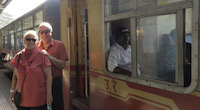 SHIMLA, QUEEN OF THE HILLS: Government officials once retreated to Shimla in the foothills of the Himalayas to escape India’s blazing hot summers. Now tourists make the same journey. READ MORE
SHIMLA, QUEEN OF THE HILLS: Government officials once retreated to Shimla in the foothills of the Himalayas to escape India’s blazing hot summers. Now tourists make the same journey. READ MORE
 TEN THINGS WE LEARNED: Our up-to-the-minute guide to creating a website, one step at a time. The costs, the mistakes – it’s what we wish we’d known when we started blogging. READ MORE
TEN THINGS WE LEARNED: Our up-to-the-minute guide to creating a website, one step at a time. The costs, the mistakes – it’s what we wish we’d known when we started blogging. READ MORE
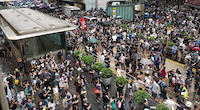 TROUBLED TIMES FOR EXPATS: Moving abroad can seem an idyllic prospect, but what happens when sudden upheavals or the inescapable realities of life intrude? READ MORE
TROUBLED TIMES FOR EXPATS: Moving abroad can seem an idyllic prospect, but what happens when sudden upheavals or the inescapable realities of life intrude? READ MORE
Disclosure: Afaranwide is an affiliate of leading travel operators such as Japan Rail Pass and Global Work & Travel, and the language-learning tool Toucan. If you purchase through our site we receive, at no additional cost to you, a small commission. We only work with companies we have used and recommend.
LET'S KEEP IN TOUCH!

COLIN SIMPSON
2008 Olympics Transformed China’s Image and Capital
Beijing 2022 Olympic Winter Games
THE Beijing Winter Olympics, which get under way on February 4, will inevitably spark memories of the last time the Chinese capital hosted Olympic competition. And however successful (or not, given diplomatic boycotts and other controversies) the 2022 event proves to be, it’s unlikely to have the same impact as the 2008 Summer Games.
Reports at the time described 2008 as the country’s “coming out party”, the moment China welcomed the world and took its place among the leading nations. It was the culmination of the policy of “reform and opening-up” instigated 30 years earlier by Deng Xiaoping, who had become China’s leader after the death of Mao Zedong.

As well as transforming the country’s international status and image, the Games had a huge impact on Beijing. The sprawling city was reborn as massive infrastructure projects were completed in the years before the spectacular opening ceremony. There were new multi-lane roads, whole districts were rebuilt, and the metro network was expanded.
When Sue and I moved to Beijing six years later we were told that much of what we saw in the modern districts had been built for 2008, right down to the city’s many public toilets – previously a rarity across China. The most obvious legacy of the Games was the Olympic park with its striking purpose-built venues, most notably the 80,000-seater Bird’s Nest stadium, and the Water Cube aquatics centre. The Bird’s Nest, designed by Ai Weiwei, remained a spectacular site when glimpsed from a taxi as we went off to collect our work permits from a suburban government office.
Coming Out Party


The tour revealed the secret of the opening ceremony’s dazzling climax, when the giant Olympic cauldron miraculously appeared as if from nowhere above the roof of the stadium and was lit by an athlete who had seemed to be running through the air. We were taken up to the roof where we saw the machinery that had lifted the cauldron into view. After the Games, the cauldron was moved to a ground-level site next to the stadium. Less interesting, as the tour continued, was a display of waxworks of the officials who had organized the Games.
Eight Gold Medals
The Water Cube, where Michael Phelps won eight gold medals, was repurposed after the Games, serving variously as a public swimming centre, an entertainment venue and a water park. As with the Bird’s Nest, sophisticated lighting means it looks best at night.
Several of the venues built for 2008 will be used for the Winter Olympics. The Bird’s Nest will host the opening and closing ceremonies – it will be fascinating to see how they try to top the 2008 opening extravaganza with its cast of 15,000. There were 2,008 drummers alone. Film director Danny Boyle studied the Beijing ceremony closely while planning the London 2012 opener. He discovered that the vast number of performers in the Bird’s Nest meant that they had to wear nappies during rehearsals, as toilet breaks would have slowed proceedings down too much.

The Water Cube will adopt another new incarnation at the Winter Olympics as the curling venue – the installation of an ice rink has inspired the nickname the Ice Cube. Alpine skiing, the main attraction at any Winter Games, will take place 90 miles away at the town of Zhangshanying. Competitors will zip over artificial snow – the real stuff rarely falls in this part of the world. Researchers have raised safety and environmental concerns about the reliance on fake snow.
China has little history or tradition as a winter sports nation – the ski centre and other facilities at Zhangshanying such as the bobsleigh and luge track have had to be specially built. When we lived in Beijing youngsters were being encouraged to take up skiing as the government tried to whip up enthusiasm for the forthcoming Games.
Authoritarian Rule
Much has changed in China in the years between Beijing’s two Olympics. Three years after the Summer Games Ai Weiwei – a courageous dissident as well as a great artist – was arrested. He now lives abroad. The heady feelings generated by the triumphant 2008 sporting spectacle, the sense of an ancient nation emerging onto the modern world stage after a century in the doldrums, have long since dissipated. Then, the emphasis was on China’s growing importance as an economic force, and there was little emphasis on politics.
Now, under the authoritarian rule of President Xi Jinping, the country has become a regional and global heavyweight, exerting its military power in the South China Sea, asserting its economic clout by reviving ancient trade routes, and remaining impervious to Western criticism of its treatment of the Uighurs.
It seems ironic that, in the run-up to the Games, the whereabouts of a sportswoman – tennis player Peng Shuai, who disappeared in November after accusing a senior Chinese politician of rape – remain unknown.
January 2022











Something in the Air

REMARKABLE efforts were made during the 2008 Games to counter the air pollution that often envelops Beijing. Smoke-belching factories around the capital were temporarily shut, and the normally grey skies turned blue.
Similar measures were taken while we were living in Beijing when the city hosted a meeting of the Association of South-East Asian Nations. The skies cleared once more, with locals dubbing the resulting colour “ASEAN blue”. The 2008 anti-pollution measures proved to be unsustainable, and soon after the closing ceremony the factories were once again pumping out choking smoke.
The air quality was poor on the night I went to the football match at the Bird’s Nest. As a result, I and many others wore the type of blue paper face-mask that has since become a common sight for a very different reason.
Pollution was often so bad that buildings near our apartment faded from view, and you would see cars on surrounding roads with their headlights switched on at midday. Expats ignored the government’s official air quality figures, preferring to rely on online data provided by instruments in the grounds of the US embassy.
Now, in the last few days before the 2022 Winter Games begin, the issue of smog in Beijing is again attracting the global media’s attention.
RELATED
 MAO MAUSOLEUM: Thousands throng to a memorial hall in Beijing’s Tiananmen Square to view the embalmed body of the revolutionary leader. READ MORE
MAO MAUSOLEUM: Thousands throng to a memorial hall in Beijing’s Tiananmen Square to view the embalmed body of the revolutionary leader. READ MORE
 TEMPLE OF HEAVEN: For centuries, Chinese emperors prayed here for good harvests. And if the crops failed, the blame fell on them. READ MORE
TEMPLE OF HEAVEN: For centuries, Chinese emperors prayed here for good harvests. And if the crops failed, the blame fell on them. READ MORE
 SLOW TRAIN FROM BEIJING: In December 2015 it was time for me to follow Colin to his new job in Hong Kong, which meant leaving my job in Beijing. I was travelling alone and decided to use my favourite means of transport – the train… READ MORE
SLOW TRAIN FROM BEIJING: In December 2015 it was time for me to follow Colin to his new job in Hong Kong, which meant leaving my job in Beijing. I was travelling alone and decided to use my favourite means of transport – the train… READ MORE
 CHERRY BLOSSOM CRUSH: Each year in late March cherry blossom season arrives in Beijing in all its glory. What could be better, you might think, than a relaxing stroll through one of the city’s many fine parks gazing at the beautiful pink blooms… READ MORE
CHERRY BLOSSOM CRUSH: Each year in late March cherry blossom season arrives in Beijing in all its glory. What could be better, you might think, than a relaxing stroll through one of the city’s many fine parks gazing at the beautiful pink blooms… READ MORE
 MURRAY IN CHINA: The first men’s Shenzhen Open, held in 2014, was won by Scotland’s Andy Murray. Fast forward four years, and he was back. In the intervening years Murray had cemented his place as a tennis great by winning Wimbledon… READ MORE
MURRAY IN CHINA: The first men’s Shenzhen Open, held in 2014, was won by Scotland’s Andy Murray. Fast forward four years, and he was back. In the intervening years Murray had cemented his place as a tennis great by winning Wimbledon… READ MORE
RECOMMENDED
 WELCOME TO OUR WORLD! Afaranwide’s home page – this is where you can find out about our latest posts and other highlights. READ MORE
WELCOME TO OUR WORLD! Afaranwide’s home page – this is where you can find out about our latest posts and other highlights. READ MORE
 TOP 10 VIRTUAL ATTRACTIONS: Many of the world’s most popular tourists sites are closed because of the coronavirus crisis, but you can still visit them virtually while you’re self-isolating. READ MORE
TOP 10 VIRTUAL ATTRACTIONS: Many of the world’s most popular tourists sites are closed because of the coronavirus crisis, but you can still visit them virtually while you’re self-isolating. READ MORE
 SHIMLA, QUEEN OF THE HILLS: Government officials once retreated to Shimla in the foothills of the Himalayas to escape India’s blazing hot summers. Now tourists make the same journey. READ MORE
SHIMLA, QUEEN OF THE HILLS: Government officials once retreated to Shimla in the foothills of the Himalayas to escape India’s blazing hot summers. Now tourists make the same journey. READ MORE
 TEN THINGS WE LEARNED: Our up-to-the-minute guide to creating a website, one step at a time. The costs, the mistakes – it’s what we wish we’d known when we started blogging. READ MORE
TEN THINGS WE LEARNED: Our up-to-the-minute guide to creating a website, one step at a time. The costs, the mistakes – it’s what we wish we’d known when we started blogging. READ MORE
 TROUBLED TIMES FOR EXPATS: Moving abroad can seem an idyllic prospect, but what happens when sudden upheavals or the inescapable realities of life intrude? READ MORE
TROUBLED TIMES FOR EXPATS: Moving abroad can seem an idyllic prospect, but what happens when sudden upheavals or the inescapable realities of life intrude? READ MORE
Disclosure: Afaranwide is an affiliate of leading travel operators such as Japan Rail Pass and Global Work & Travel, and the language-learning tool Toucan. If you purchase through our site we receive, at no additional cost to you, a small commission. We only work with companies we have used and recommend.
LET'S KEEP IN TOUCH!
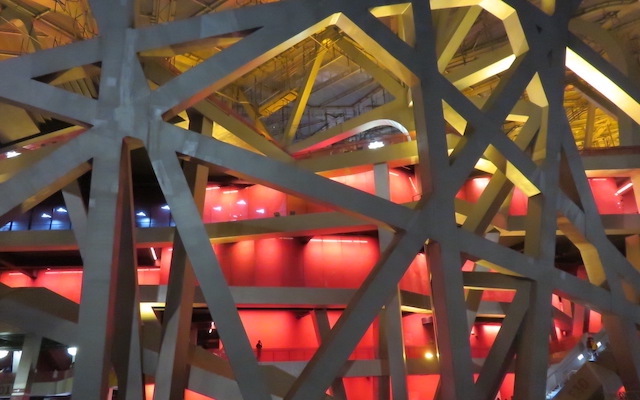
Can Beijing Triumph
Again at the Games?
2008 Olympics Transformed China’s Image and Capital

COLIN SIMPSON
Beijing 2022 Olympic Winter Games
THE Beijing Winter Olympics, which get under way on February 4, will inevitably spark memories of the last time the Chinese capital hosted Olympic competition. And however successful (or not, given diplomatic boycotts and other controversies) the 2022 event proves to be, it’s unlikely to have the same impact as the 2008 Summer Games.
Reports at the time described 2008 as the country’s “coming out party”, the moment China welcomed the world and took its place among the leading nations. It was the culmination of the policy of “reform and opening-up” instigated 30 years earlier by Deng Xiaoping, who had become China’s leader after the death of Mao Zedong.
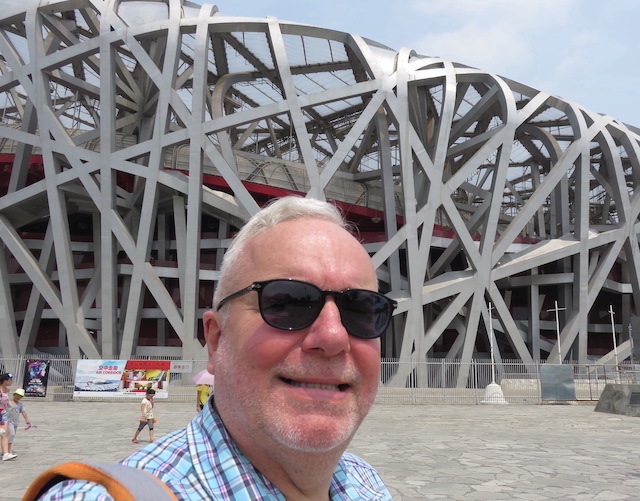
As well as transforming the country’s international status and image, the Games had a huge impact on Beijing. The sprawling city was reborn as massive infrastructure projects were completed in the years before the spectacular opening ceremony. There were new multi-lane roads, whole districts were rebuilt, and the metro network was expanded.
When Sue and I moved to Beijing six years later we were told that much of what we saw in the modern districts had been built for 2008, right down to the city’s many public toilets – previously a rarity across China. The most obvious legacy of the Games was the Olympic park with its striking purpose-built venues, most notably the 80,000-seater Bird’s Nest stadium, and the Water Cube aquatics centre. The Bird’s Nest, designed by Ai Weiwei, remained a spectacular site when glimpsed from a taxi as we went off to collect our work permits from a suburban government office.
Coming Out Party


The tour revealed the secret of the opening ceremony’s dazzling climax, when the giant Olympic cauldron miraculously appeared as if from nowhere above the roof of the stadium and was lit by an athlete who had seemed to be running through the air. We were taken up to the roof where we saw the machinery that had lifted the cauldron into view. After the Games, the cauldron was moved to a ground-level site next to the stadium. Less interesting, as the tour continued, was a display of waxworks of the officials who had organized the Games.
Eight Gold Medals
The Water Cube, where Michael Phelps won eight gold medals, was repurposed after the Games, serving variously as a public swimming centre, an entertainment venue and a water park. As with the Bird’s Nest, sophisticated lighting means it looks best at night.
Several of the venues built for 2008 will be used for the Winter Olympics. The Bird’s Nest will host the opening and closing ceremonies – it will be fascinating to see how they try to top the 2008 opening extravaganza with its cast of 15,000. There were 2,008 drummers alone. Film director Danny Boyle studied the Beijing ceremony closely while planning the London 2012 opener. He discovered that the vast number of performers in the Bird’s Nest meant that they had to wear nappies during rehearsals, as toilet breaks would have slowed proceedings down too much.
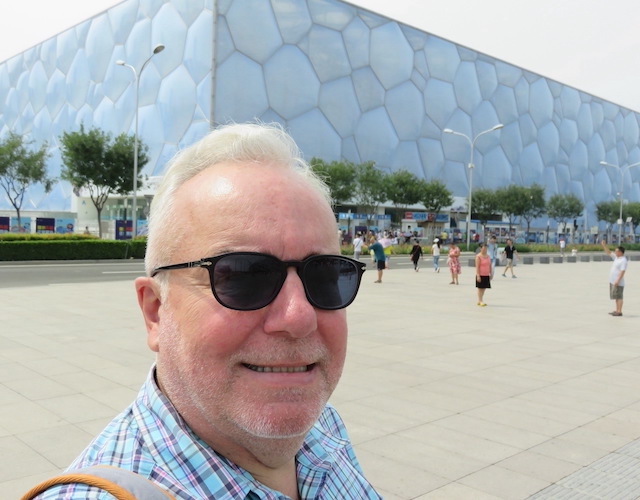
The Water Cube will adopt another new incarnation at the Winter Olympics as the curling venue – the installation of an ice rink has inspired the nickname the Ice Cube. Alpine skiing, the main attraction at any Winter Games, will take place 90 miles away at the town of Zhangshanying. Competitors will zip over artificial snow – the real stuff rarely falls in this part of the world. Researchers have raised safety and environmental concerns about the reliance on fake snow.
China has little history or tradition as a winter sports nation – the ski centre and other facilities at Zhangshanying such as the bobsleigh and luge track have had to be specially built. When we lived in Beijing youngsters were being encouraged to take up skiing as the government tried to whip up enthusiasm for the forthcoming Games.
Authoritarian Rule
Much has changed in China in the years between Beijing’s two Olympics. Three years after the Summer Games Ai Weiwei – a courageous dissident as well as a great artist – was arrested. He now lives abroad. The heady feelings generated by the triumphant 2008 sporting spectacle, the sense of an ancient nation emerging onto the modern world stage after a century in the doldrums, have long since dissipated. Then, the emphasis was on China’s growing importance as an economic force, and there was little emphasis on politics.
Now, under the authoritarian rule of President Xi Jinping, the country has become a regional and global heavyweight, exerting its military power in the South China Sea, asserting its economic clout by reviving ancient trade routes, and remaining impervious to Western criticism of its treatment of the Uighurs.
It seems ironic that, in the run-up to the Games, the whereabouts of a sportswoman – tennis player Peng Shuai, who disappeared in November after accusing a senior Chinese politician of rape – remain unknown.
January 2022
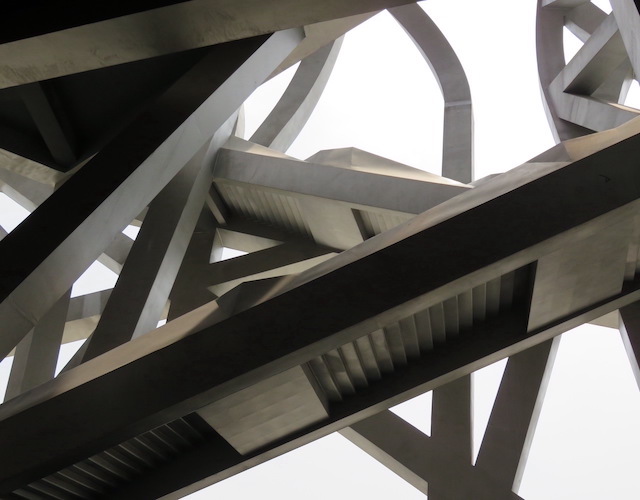
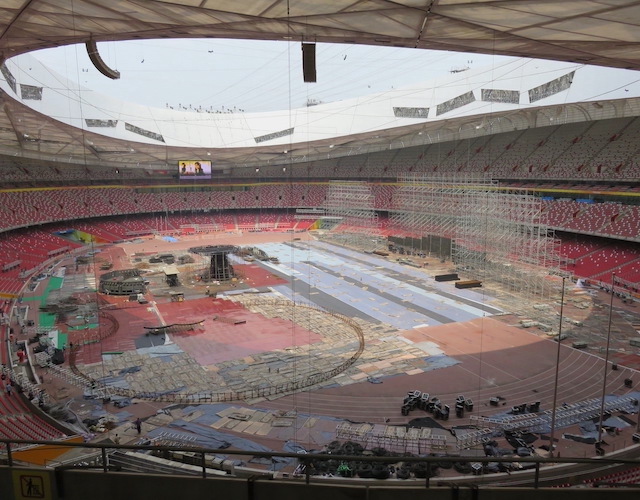
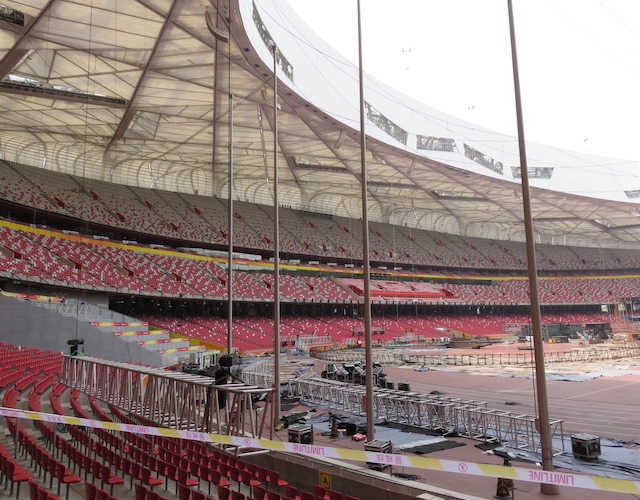
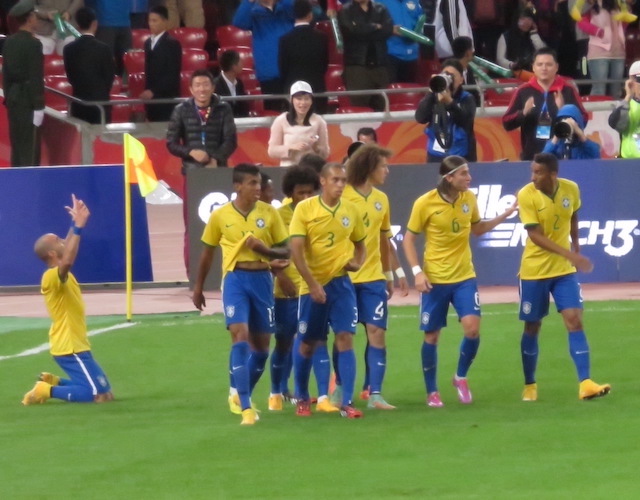

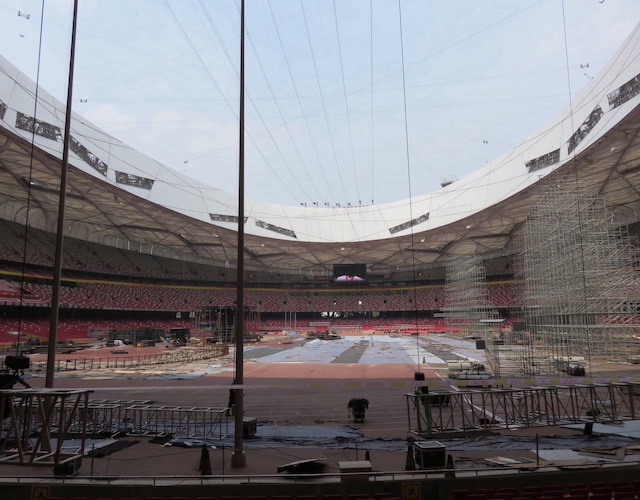
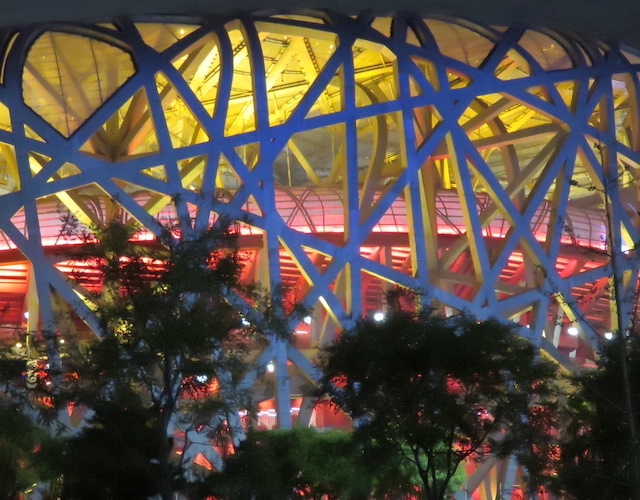
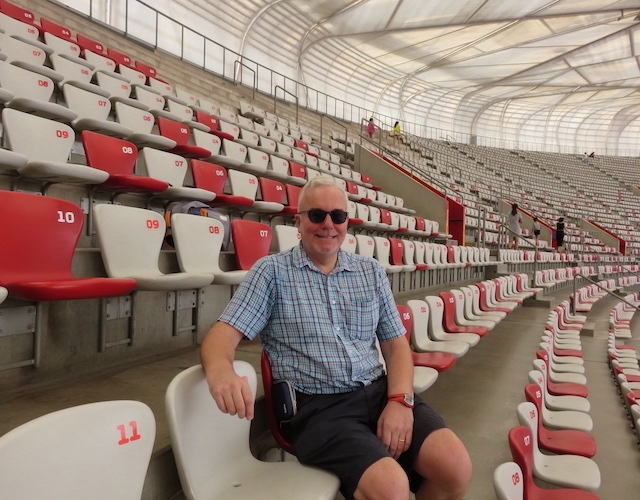
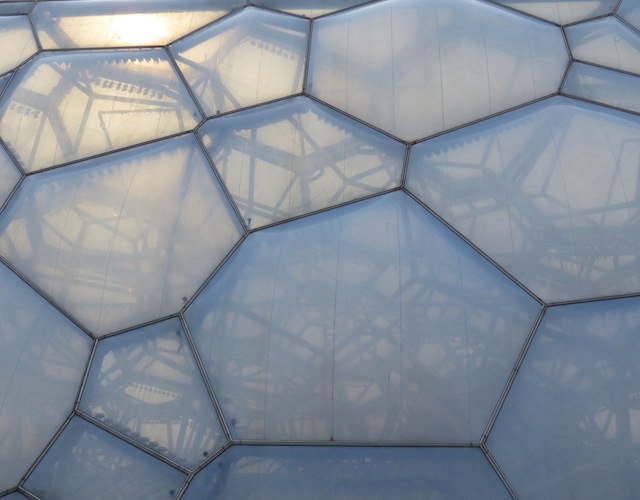

Something in the Air
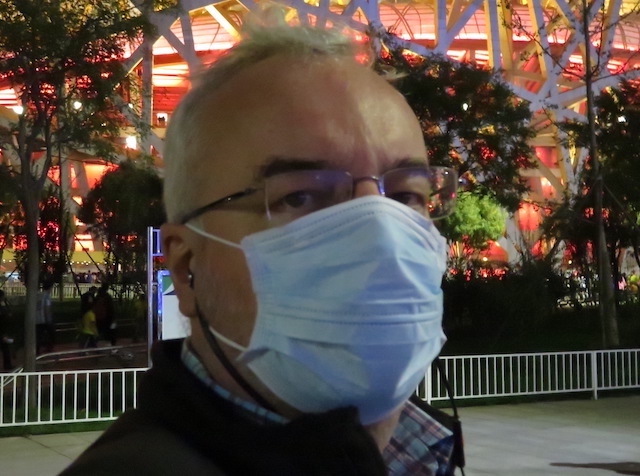
REMARKABLE efforts were made during the 2008 Games to counter the air pollution that often envelops Beijing. Smoke-belching factories around the capital were temporarily shut, and the normally grey skies turned blue.
Similar measures were taken while we were living in Beijing when the city hosted a meeting of the Association of South-East Asian Nations. The skies cleared once more, with locals dubbing the resulting colour “ASEAN blue”. The 2008 anti-pollution measures proved to be unsustainable, and soon after the closing ceremony the factories were once again pumping out choking smoke.
The air quality was poor on the night I went to the football match at the Bird’s Nest. As a result, I and many others wore the type of blue paper face-mask that has since become a common sight for a very different reason.
Pollution was often so bad that buildings near our apartment faded from view, and you would see cars on surrounding roads with their headlights switched on at midday. Expats ignored the government’s official air quality figures, preferring to rely on online data provided by instruments in the grounds of the US embassy.
Now, in the last few days before the 2022 Winter Games begin, the issue of smog in Beijing is again attracting the global media’s attention.
RELATED
 MAO MAUSOLEUM: Thousands throng to a memorial hall in Beijing’s Tiananmen Square to view the embalmed body of the revolutionary leader. READ MORE
MAO MAUSOLEUM: Thousands throng to a memorial hall in Beijing’s Tiananmen Square to view the embalmed body of the revolutionary leader. READ MORE
 TEMPLE OF HEAVEN: For centuries, Chinese emperors prayed here for good harvests. And if the crops failed, the blame fell on them. READ MORE
TEMPLE OF HEAVEN: For centuries, Chinese emperors prayed here for good harvests. And if the crops failed, the blame fell on them. READ MORE
 SLOW TRAIN FROM BEIJING: In December 2015 it was time for me to follow Colin to his new job in Hong Kong, which meant leaving my job in Beijing. I was travelling alone and decided to use my favourite means of transport – the train… READ MORE
SLOW TRAIN FROM BEIJING: In December 2015 it was time for me to follow Colin to his new job in Hong Kong, which meant leaving my job in Beijing. I was travelling alone and decided to use my favourite means of transport – the train… READ MORE
 CHERRY BLOSSOM CRUSH: Each year in late March cherry blossom season arrives in Beijing in all its glory. What could be better, you might think, than a relaxing stroll through one of the city’s many fine parks gazing at the beautiful pink blooms… READ MORE
CHERRY BLOSSOM CRUSH: Each year in late March cherry blossom season arrives in Beijing in all its glory. What could be better, you might think, than a relaxing stroll through one of the city’s many fine parks gazing at the beautiful pink blooms… READ MORE
 MURRAY IN CHINA: The first men’s Shenzhen Open, held in 2014, was won by Scotland’s Andy Murray. Fast forward four years, and he was back. In the intervening years Murray had cemented his place as a tennis great by winning Wimbledon… READ MORE
MURRAY IN CHINA: The first men’s Shenzhen Open, held in 2014, was won by Scotland’s Andy Murray. Fast forward four years, and he was back. In the intervening years Murray had cemented his place as a tennis great by winning Wimbledon… READ MORE
RECOMMENDED
 WELCOME TO OUR WORLD! Afaranwide’s home page – this is where you can find out about our latest posts and other highlights. READ MORE
WELCOME TO OUR WORLD! Afaranwide’s home page – this is where you can find out about our latest posts and other highlights. READ MORE
 TOP 10 VIRTUAL ATTRACTIONS: Many of the world’s most popular tourists sites are closed because of the coronavirus crisis, but you can still visit them virtually while you’re self-isolating. READ MORE
TOP 10 VIRTUAL ATTRACTIONS: Many of the world’s most popular tourists sites are closed because of the coronavirus crisis, but you can still visit them virtually while you’re self-isolating. READ MORE
 SHIMLA, QUEEN OF THE HILLS: Government officials once retreated to Shimla in the foothills of the Himalayas to escape India’s blazing hot summers. Now tourists make the same journey. READ MORE
SHIMLA, QUEEN OF THE HILLS: Government officials once retreated to Shimla in the foothills of the Himalayas to escape India’s blazing hot summers. Now tourists make the same journey. READ MORE
 TEN THINGS WE LEARNED: Our up-to-the-minute guide to creating a website, one step at a time. The costs, the mistakes – it’s what we wish we’d known when we started blogging. READ MORE
TEN THINGS WE LEARNED: Our up-to-the-minute guide to creating a website, one step at a time. The costs, the mistakes – it’s what we wish we’d known when we started blogging. READ MORE
 TROUBLED TIMES FOR EXPATS: Moving abroad can seem an idyllic prospect, but what happens when sudden upheavals or the inescapable realities of life intrude? READ MORE
TROUBLED TIMES FOR EXPATS: Moving abroad can seem an idyllic prospect, but what happens when sudden upheavals or the inescapable realities of life intrude? READ MORE
Disclosure: Afaranwide is an affiliate of leading travel operators such as Japan Rail Pass and Global Work & Travel, and the language-learning tool Toucan. If you purchase through our site we receive, at no additional cost to you, a small commission. We only work with companies we have used and recommend.





